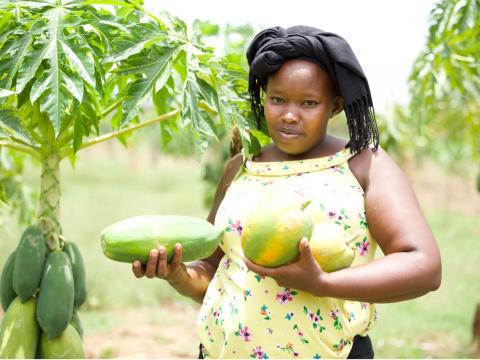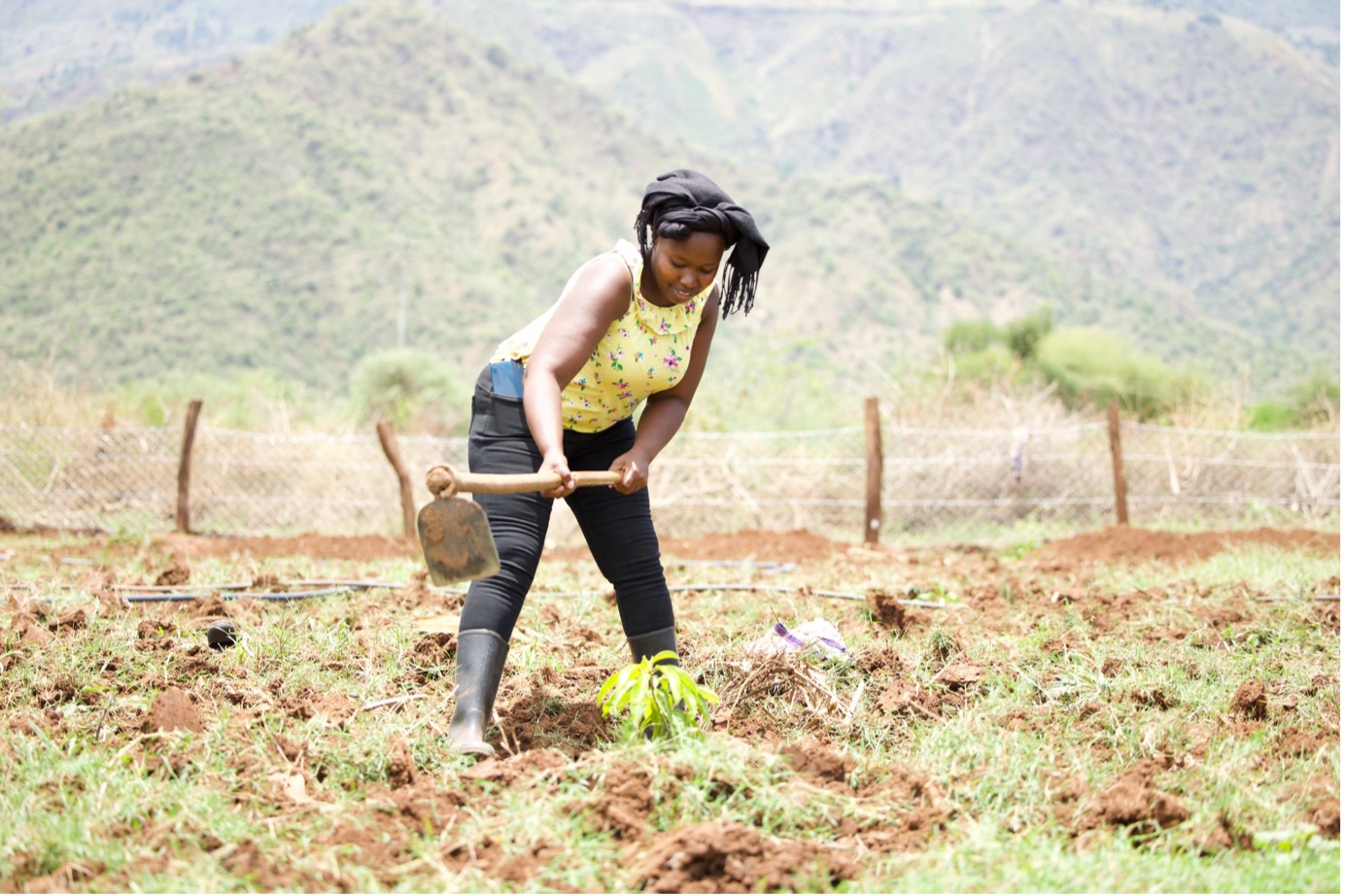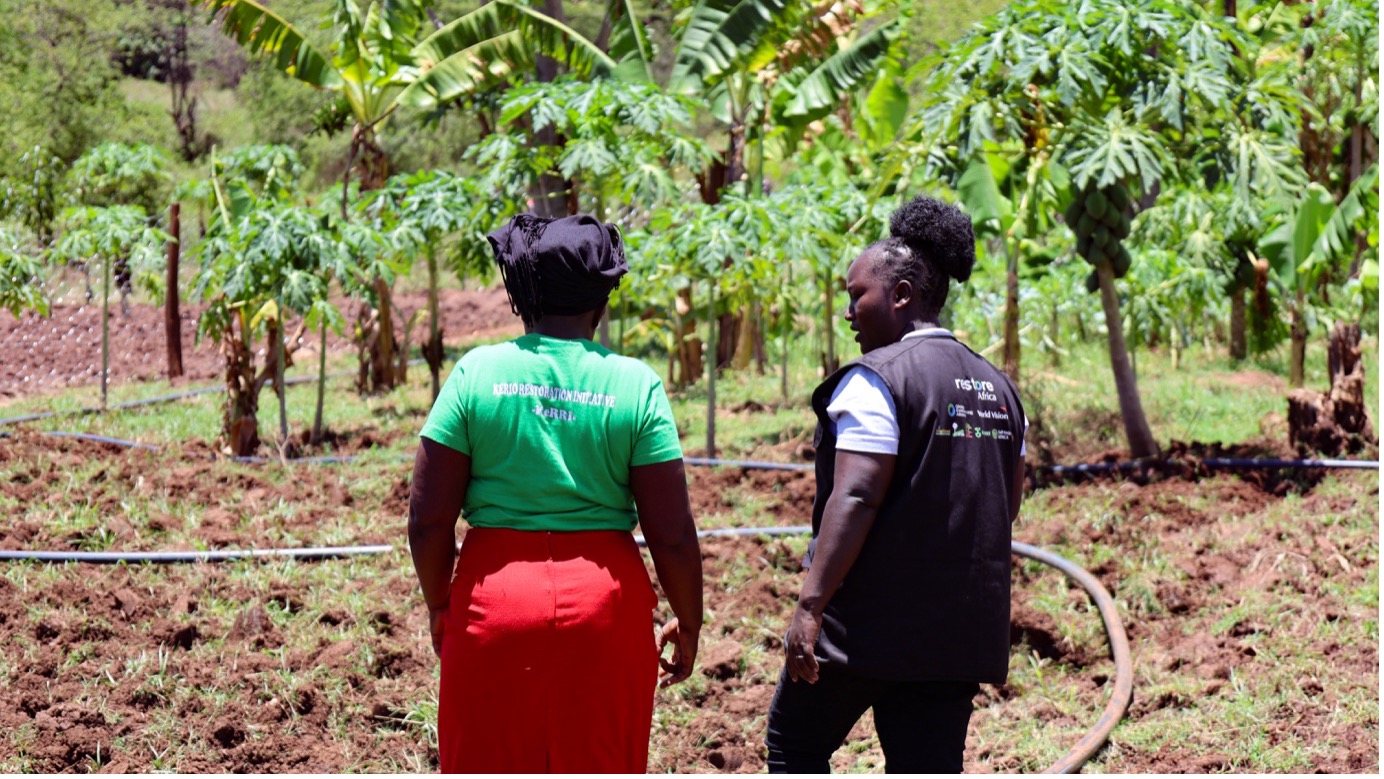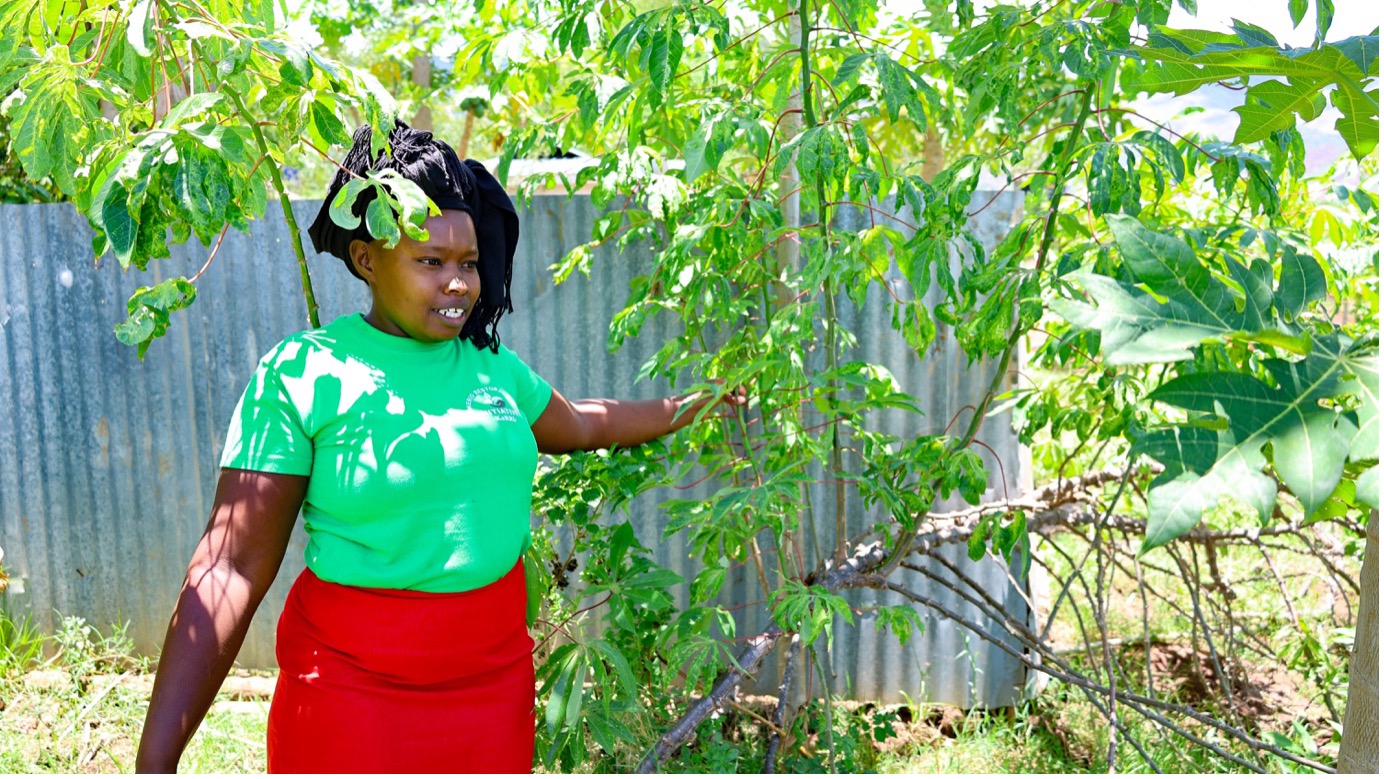Jesca Kiprop: Land Restoration Champion

In Kamumbas village, Elgeyo Marakwet County, Kenya, we met Jesca Kiprop — a 32-year-old proud mother of three — who has dedicated her life to restoring the ecosystem. Jesca is working tirelessly to ensure a sustainable future for her community and the generations to come. A passionate environmentalist, she is leading efforts to restore degraded landscapes and promote sustainable agriculture.
Her commitment to landscape restoration deepened in 2023 when she was invited as a key stakeholder to the launch of the Global EverGreening Alliance’s Restore Africa (RESAf) Programme in Elgeyo Marakwet County — a moment that marked recognition of her land restoration efforts.
“I really felt honoured when I was invited to participate in the launch,” she shares, adding, “When I heard that RESAf would help us restore landscapes, improve livelihoods, and remove carbon, it truly resonated with my passion for environmental conservation.”

She later participated in numerous community sensitisation forums (chief’s barazas), jointly mobilised by the local administration and Self Help Africa — one of the implementing partners of the Restore Africa Programme.
Jesca is among 143 lead farmers from Elgeyo Marakwet selected by their peers under the Restore Africa Programme. She has received training in tree planting, proper spacing, land management, agroforestry, Farmer Managed Natural Regeneration (FMNR), and other agronomic techniques.
“I have learned new farming methods such as agro-silvopastoral systems, woodlots, and boundary tree planting — systems that allow crops to grow alongside trees,” she shares. With this knowledge, she now mentors other farmers in her community.

As a lead farmer and founder of the Kerio Restoration Initiative (KeRRi) — a community-based organisation focusing on land restoration and environmental conservation — Jesca supports vulnerable women, youth, and persons with disabilities in both Baringo and Elgeyo Marakwet counties. Her passion for tree planting and sustainable agriculture is evident in her daily life, where she leads by example and inspires others to join the movement.
On a typical day, when she is not mentoring the groups on Farmer-Managed Natural Regeneration (FMNR), agroforestry, or value chain diversification, Jesca can be found tending to her farm, where she grows mangoes, pawpaws, vegetables, and perennial crops.
Through KeRRi, Jesca and her team are actively involved in tree planting and conserving the Kerio Valley ecosystem, which has been negatively impacted by deforestation, charcoal burning, and overuse of chemicals — a result of intensive farming along the Kerio River.

Alphonse Kipkemoi Samongi, a 74-year-old farmer trained by Jesca, is optimistic despite the challenges. “We had lost many indigenous and medicinal trees, but this programme has pricked our conscience, reminding us that our small efforts can bring back our ecosystem,” he reflects.
His concern, however, is that not everyone is yet aware of the importance of conservation. “As you can see in the highlands, there are scattered smoke plumes — that’s charcoal being burnt from felled trees, and it’s contributing to forest loss,” he adds thoughtfully.
Jesca Kiprop envisions a future where landscape restoration enhances her community’s resilience to climate change. “Restore Africa has opened our eyes. We are not just planting trees — we are securing our future. My hope is that through this collaboration, our landscapes will be restored, and livelihoods will improve,” she concludes.
World Vision Kenya leads a consortium of five organisations — CIFOR-ICRAF, Africa Harvest, Self Help Africa, Justdiggit, and Green Belt Movement — in implementing the Global EverGreening Alliance’s Restore Africa Programme, a large-scale, farmer-led land restoration initiative. The programme aims to increase the resilience and productivity of socio-ecological systems by restoring 250,000 hectares of degraded land across five counties: Elgeyo Marakwet, Kilifi, Kwale, Migori, and Narok. It also seeks to improve the livelihoods of 250,000 smallholder farmers and pastoralists — including men, women, and youth.
By Felix Pilipili, Communications Specialist, World Vision Kenya